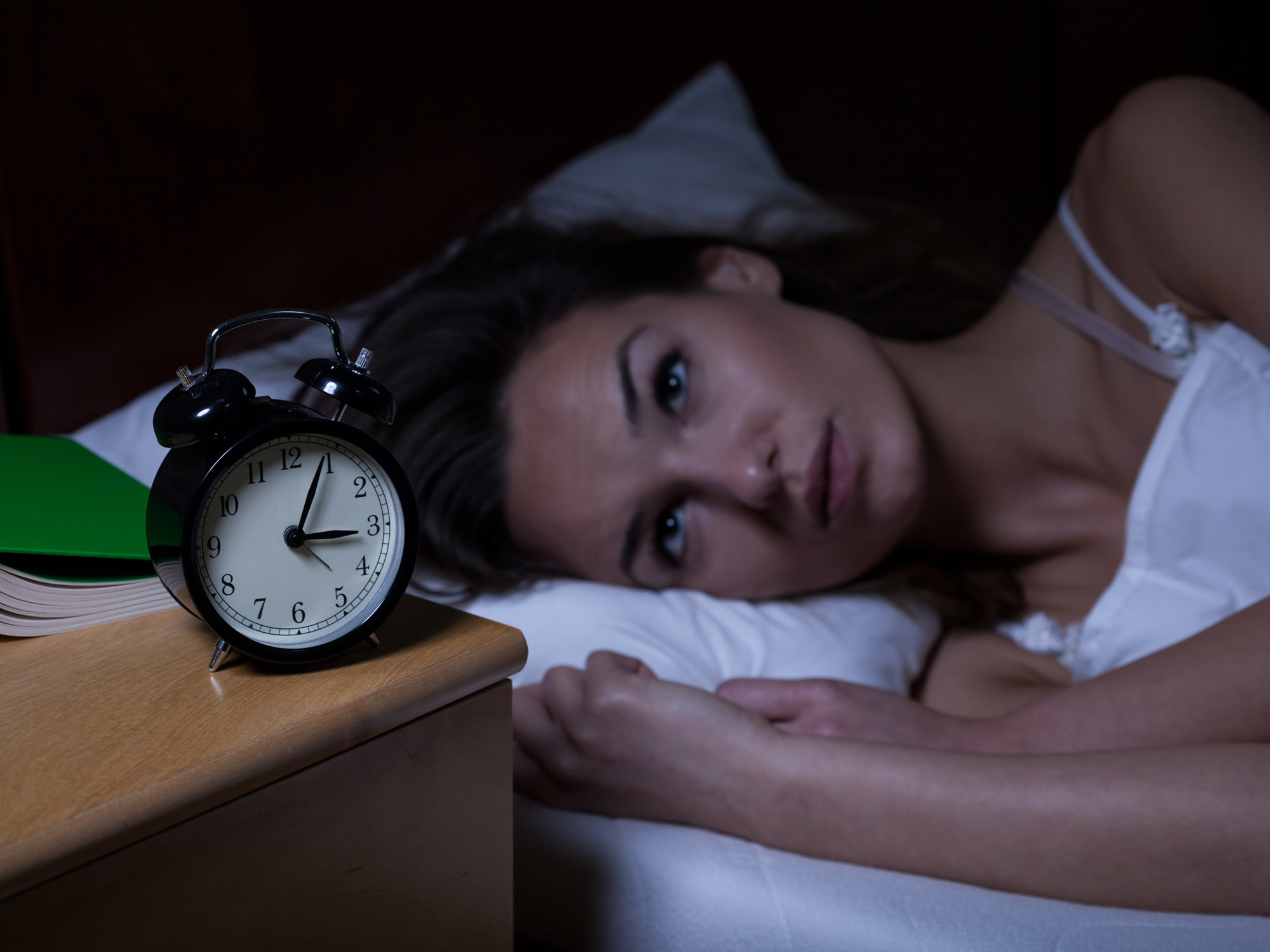Get Easy Health Digest™ in your inbox and don’t miss a thing when you subscribe today. Plus, get the free bonus report, Mother Nature’s Tips, Tricks and Remedies for Cholesterol, Blood Pressure & Blood Sugar as my way of saying welcome to the community!
Can this ‘sleepy’ herb knock out your insomnia?

If you suffer from chronic insomnia, and you’ve tried all the usual remedies without success, don’t give up hope…
Finding the right treatment for a stubborn case of insomnia is a process of trial and error. What works for one person may not work for others.
For example… Some people find that exercise, meditation, melatonin or a combination of all three do the trick. For others, acupuncture and other traditional Chinese medicine approaches are the only remedies that work. And some people still reach for prescription sleep aids with frightening side effects.
But if you haven’t found the right remedy for your chronic insomnia yet, you’ll want to hear about the latest study from researchers at the International Institute for Integrative Sleep Medicine in Japan…
In their study, they demonstrated the insomnia-fighting powers of an ancient herb that may be the sleep solution you’ve been searching for.
It’s not an herb you typically hear about in the dialogue about natural sleep remedies, so there’s a good chance you haven’t tried it yet… even though it has a long and successful history as a sleep aid…
Ashwagandha: The answer to insomnia
The Ayurvedic herb ashwagandha is a powerful adaptogen that’s best known for its ability to fight free radicals, support the immune system and relieve stress. But it’s also been used for centuries to promote sleep — and not just in India.
The second half of ashwagandha’s Latin name — Withania somnifera — means “sleep-inducing”… which proves its reputation as an insomnia-fighter has a long history in the Western world too.
Based on their latest study, Japanese researchers say ashwagandha’s ability to send you into a deep slumber is due to one particular compound… triethylene glycol (TEG).
Triethylene glycol (TEG) is a compound found in the ashwagandha leaf, which was shown in their study to drastically improve non-rapid eye movement (NREM) and slightly improve rapid eye movement (REM) sleep in mice.
Of course, there may be other components in ashwagandha that encourage sleep too…
A 2008 study found that an extract from the ashwagandha root improved the sleep-wake cycle in sleep-deprived rats. And the root had a similar effect on sleep-deprived mice in a 2007 study.
So both the root and the leaves contain sleep-inducing compounds of some form or another. No wonder ashwagandha has been a sleep aid for centuries!
Now, even though ashwagandha has a long history as a sleep aid and scientific proof supporting it, there’s no guarantee it’s the answer to your sleep woes. But even if it’s not, it could still be a major boon to your health. Studies have shown that ashwagandha also may help:
- Protect against the negative effects of stress
- Fight cancer
- Prevent neurodegenerative disorders
- Improve eye health
- Prevent seizures
- Fight diabetes
- Ward off depression
With the possibility of all these worthwhile benefits, you may want to at least give ashwagandha a shot…
There are a lot ways you can take this sleep and health-promoting herb. You can take ashwagandha in powder, pill or tincture form. Some people even use the dried root to make ashwagandha tea.
The exact dosage necessary to promote better sleep is still up for debate. For some health ailments, 100-200 mg of ashwagandha per day seems to provide noticeable benefits. For insomnia, you can try taking up to 500 mg per day.
But beware… in rare cases, ashwagandha can worsen insomnia. If you notice this happening to you, stop taking it and go back to the drawing board for a solution to your sleep problems. More than likely, though, you’ll be among the majority of people who rediscover their ability to sleep soundly and peacefully… all thanks to ashwagandha.
If you have any special medical conditions be sure to check for drug interactions. Ashwaganda may lower blood sugar and blood pressure and this could intensify affects of medication. Most herbs should be avoided during pregnancy and if a mother is breastfeeding.
Sources:
-
Key component of sleep-inducing herb identified — MedicalXpress. Retrieved March 31, 2017.
-
K. Kaushik, et al. “Triethylene glycol, an active component of Ashwagandha (Withania somnifera) leaves, is responsible for sleep induction.”— PLOS ONE, 2017.
-
Kumar and H. Kalonia. “Effect of Withania somnifera on Sleep-Wake Cycle in Sleep-Disturbed Rats: Possible GABAergic Mechanism.” — Indian Journal of Pharmaceutical Sciences. Nov-Dec 2008; 70(6): 806–810.
-
Kumar and H. Kalonia. “Protective effect of Withania somnifera Dunal on the behavioral and biochemical alterations in sleep-disturbed mice (Grid over water suspended method).” — Indian Journal of Experimental Biology. Jun 2007;45(6):524-8.
-
15 Surprising Benefits Of Ashwagandha Or Indian Ginseng — Organic Facts. Retrieved March 31, 2017.
-
Ashwagandha — WholeHealth Chicago. Retrieved March 31, 2017.
-
Ashwagandha for Better Sleep? — DrWeil.com. Retrieved March 31, 2017.












